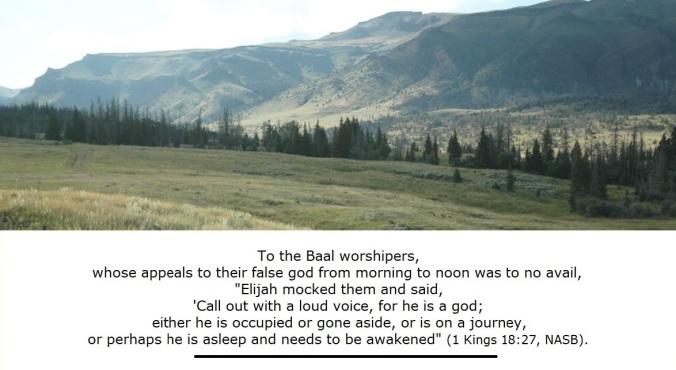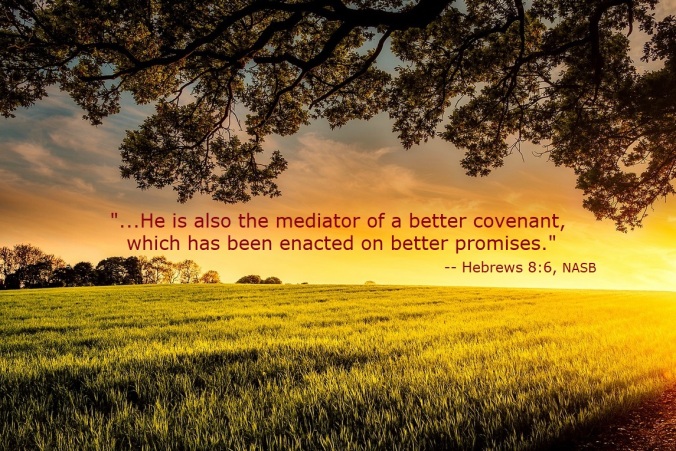“Go therefore and make disciples of all the nations…teaching them to observe all that I commanded you; and lo, I am with you always, even to the end of the age” (Matt. 28:19-20).
——————–
Contents:
1) Myth or History? (Part 1 of 3) (Forrest D. Moyer)
——————–

-1-
Myth or History? (Part 1 of 3)
Forrest D. Moyer
The Bible is either the product of God or the product of men. Christians believe that the Bible is from the hand of God and that it is to be believed and obeyed in order to have a good life now and Heaven in eternity. There have always been those who oppose God and His way. This opposition has come in varied forms. Some have been and are opposed to the idea of God; thus, they are “atheists” (the “a” negates “theist,” a believer in God). There are those who accept the idea of God but reject His interaction with man in revelation or divine authority. These are known as “deists.” The opposition to the Bible as the revelation of God to man has been around for centuries, but it is now becoming more and more prevalent. As humanism advances, so does opposition to the Bible. Humanism and the Bible cannot co-exist. One or the other must fall.
One form of this opposition to Jesus and to the Bible comes with the charge that the Bible is made up of myths that have been foisted upon people by priestly castes in order that priests might control the masses. Our purpose in this writing is to examine the charge that the Bible is made up of myths and fables.
The Charges
First, let us look at some of the charges that are made against the Bible:
“The Gospels do not contain the history of an actual man, but only the myth of the god-man Jesus, clothed in a historical dress.”1
“The Bible is not ‘the word of God,’ but stolen from pagan sources. Its Eden, Adam and Eve were taken from the Babylonian account; its Flood or Deluge is but an epitome of some four hundred flood accounts; its Ark and Ararat have their equivalents in a score of Deluge myths; even the names of Noah’s sons are copies, so also Isaac’s sacrifice, Solomon’s judgment, and Samson’s pillar act; its Moses is fashioned after the Syrian Mises; its laws after Hammurabi’s code. Its Messiah is derived from the Egyptian Mahdi, Savior, certain verses are verbatim copies of Egyptian scriptures. Between Jesus and the Egyptian Horus, Gerald Massey found 137 similarities, and those between Christ and Krishna run into the hundreds. How then can the Bible be a revelation to the Jews?”2
Mr. Graham expresses his humanism by saying, “It’s time this scriptural tyranny was broken that we may devote our time to man instead of God, to civilizing ourselves instead of saving our souls that were never lost.”3
Another quote from him will show how rabid is his opposition to God as he advances his humanistic philosophy:
“Had Christ known the nature of Reality he would not have taught the love of God for man or its reverse. Yet the Gospels have him say: ‘And thou shalt love the Lord thy God with all thy heart, and with all thy soul, and with all thy mind, and with all thy strength: this is the first commandment’ (Mark 12:30). It is not the first of an enlightened Christ but only of a priesthood that needed it professionally. God being but the ruthless creative power, man has no right to love it, since from it spring all his pain and suffering, his savagery and war. If he would escape from these he must not only cease pretending to love it but oppose and conquer it. Mythologically man rebelled against this one–to become human; he must now rebel against it mentally and morally to become divine.”4
It is obvious from these quotations that Graham “errs, not knowing the Scriptures nor the power of God.” However, humanists and atheists are not the only ones to regard the Scriptures as filled with myths. The Interpreter’s Bible commentary is considered to be one of the most scholarly works in its field. We quote:
“Obviously, the book [Genesis] begins in that misty region of tradition and transmitted myth in which imagination precedes knowledge. Few will suppose that Adam and Eve and the Garden of Eden belong to factual history. Cain and Abel and Lamech and Nimrod and Methuselah and Noah–these also come down to us as legends rather than as persons identifiable in the literal history of a particular time.”5
“Not knowing the Scriptures nor the power of God” has led many to look upon the Biblical accounts as myths. Hermann Gunkel wrote toward the end of the last century:
“The clearest criterion of legend is that it frequently reports things which are quite incredible… Thus many things are reported in Genesis which go directly against our better knowledge: we know that there are too many species of animals for all to have been assembled in any ark; that Ararat is not the highest mountain on earth;… And however cautious the modern historian may be in declaring anything impossible, he may declare with all confidence that animals–serpents and she-asses, for instance–do not speak and never have spoken, that there is no tree whose fruit confers immortality or knowledge…”6
In Response
It is impossible to reply to all the various charges that the Biblical account contains myths in this one paper. However, I shall address some questions of significance in response.
The Biblical Claim
Let it be understood that the Biblical writers did not regard the Genesis account or the person of Jesus as mythical. The New Testament writers quote from Genesis numerous times, thus placing their stamp of approval upon what was recorded in Genesis. If the New Testament writers were inspired (and I affirm that they were), then it follows that the account given in Genesis is historically accurate. Geisler and Nix give a list of thirty-two people and events of the Old Testament which are referred to as historical by New Testament writers. Fifteen of these are from the first twelve chapters of Genesis:
* Creation of the universe (Genesis 1): John 1:3; Colossians 1:16
* Creation of Adam and Eve (Genesis 1-2): I Timothy 2:13-14
* Marriage of Adam and Eve (Genesis 1-2): I Timothy 2:13
* Temptation of the woman (Genesis 3): I Timothy 2:14
* Disobedience and sin of Adam (Genesis 3): Romans 5:12; I Corinthians 15:22
* Sacrifices of Abel and Cain (Genesis 4): Hebrews 11:4
* Murder of Abel by Cain (Genesis 4): I John 3:12
* Birth of Seth (Genesis 4): Luke 3:38
* Translation of Enoch (Genesis 5): Hebrews 11:5
* Marriage before the flood (Genesis 6): Luke 17:27
* The flood and destruction of man (Genesis 7): Matthew 24:39
* Preservation of Noah and his family (Genesis 8-9): II Peter 2:5
* Genealogy of Shem (Genesis 10): Luke 3:35-36
* Birth of Abraham (Genesis 11): Luke 3:34
* Call of Abraham (Genesis 12-13): Hebrews 11:8
In this sample survey, several things should be noted. Most of the controversial passages of the Old Testament are referred to, for example, the creation, fall, flood, miracles of Moses and Elijah, and Jonah in the great fish. These are not just alluded to, they are authenticated as historical events by the New Testament. If these major miraculous events are authentic, there is no difficulty in accepting the rest of the events of the Old Testament.8
(To be continued)
*****
1. Arthur Drews as quoted by Lloyd Graham, Deceptions and Myths of the Bible, Carol Communications, N.Y., p. 282.
2. Lloyd Graham, Ibid., p. 5.
3. Ibid., p. 6.
4. Ibid., p. 426.
5. The Interpreter’s Bible. Abingdon Press. New York. Vol. I. 1952, p. 460.
6; Gunkel, Hermann. The Legends of Genesis: The Biblical Saga and History. Schocken Books. New York. 1964. pp 7-8. Quoted in a manuscript by Brad Bromling, Is Genesis Myth? Apologetics Press, Inc. Montgomery, AL.
7. Geisler, Norman L. and William E. Nix. A General Introduction to the Bible. Moody Press. Chicago. 1968, p. 85.
8. Ibid., p. 86.
— Via the bulletin of the La Vista church of Christ
——————–
The Steps That Lead to Eternal Salvation
1) Hear the gospel, for that is how faith comes (Rom. 10:17; John 20:30-31).
2) Believe in the deity of Christ (John 8:24; John 3:18).
3) Repent of sins (Luke 13:5; Acts 17:30).
4) Confess faith in Christ (Rom. 10:9-10; Acts 8:36-38).
5) Be baptized in water for the remission of sins (Mark 16:16; Acts 2:38; 22:16; Rom. 6:3-4; Gal. 3:26-27; 1 Pet. 3:21).
6) Continue in the faith, living for the Lord; for, if not, salvation can be lost (Heb. 10:36-39; Rev. 2:10; 2 Pet. 2:20-22).
——————–
Tebeau Street
CHURCH OF CHRIST
1402 Tebeau Street, Waycross, GA 31501
Sunday services: 9:00 a.m. (Bible class); 10 a.m. & 5 p.m. (worship)
Wednesday: 7 p.m. (Bible class)
evangelist/editor: Tom Edwards (912) 281-9917
Tom@ThomasTEdwards.com
http://thomastedwards.com/go (Older version of Gospel Observer website without pictures, but back to March 1990)
http://tebeaustreetchurchofchrist.org/
http://ThomasTEdwards.com/audioser.html (audio sermons)












